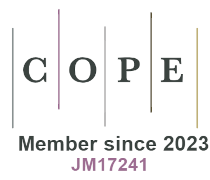Selected instruments of housing support in the Czech Republic. A case study of Brno and Ostrava
DOI:
https://doi.org/10.18778/2082-4440.33.03Keywords:
housing needs, local housing programs, housing subsidiesAbstract
The Concept of Social Housing of the Czech Republic for 2015–2025 is a framework document setting the direction for the creation of a social housing system for people in need of housing in the Czech Republic. The aim of the concept of social housing in the Czech Republic is to create a new system that should be built on the current system of state, regional and municipal interventions in housing, social services and social benefits. Housing support is also provided in the form of benefits paid by the Employment Office of the Czech Republic. The Czech state supports low-income social groups in covering their housing costs. The basic housing subsidies in the Czech Republic are: housing allowance (příspěvek na bydleni) and housing supplement (doplatek na bydleni). The purpose of this study is to evaluate the effectiveness of selected housing support programs in Brno and Ostrava. In the article, the term effectiveness refers to the implemented local housing policies of the examined cities, while the term efficiency refers to the housing support instruments of Brno and Ostrava. The objectives of the local housing assistance and housing subsidy programs of the examined cities are often defined in very general terms, which, combined with the lack of statistical data on the amount of these benefits and their number, makes it difficult to conduct an effective comparative analysis. For this reason, the selection of programs subjected to empirical and quantitative comparative effectiveness analysis was limited to the following: housing allowance (příspěvek na bydleni) and housing supplement (doplatek na bydleni). The research problem was formulated as follows: Do the analyzed housing subsidies: housing benefit (příspěvek na bydleni) and housing allowance (doplatek na bydleni) contribute to reducing the level of income inequality in Czech society? The studied cities were subjected to a comparative analysis due to different housing support instruments. In the paper, selected housing policy instruments were empirically and quantitatively evaluated for their effectiveness, which was based on the number and amount of payments of individual housing benefits analyzed. The research methods used are critical literature analysis, comparative quantitative analysis, comparative analysis. The used sources of foundational data in the study are: Úřadu práce ČR and Český statistický úřad. The completed assessment of the effectiveness of selected housing support programs in Brno and Ostrava showed the following correlations: at the end of 2018 there were a total of 726 social housing units in Ostrava (i.e. twice the number of social housing units in Brno), in contrast to the other assessed housing support instruments, housing benefit (příspěvek na bydleni) and housing allowance (doplatek na bydleni) are income-based benefits. The percentage of households entitled to these benefits is clearly the highest among households with the lowest income. The comparative analysis carried out showed that both housing subsidies: housing benefit (příspěvek na bydleni) and housing allowance (doplatek na bydleni) contribute to reducing the level of income inequality in the Czech society.
References
Agentura pro sociální začleňování, Tematický akční plan pro oblast sociálního bydlení ve městě Brně 2019–2022 https://www.socialni-zaclenovani.cz/wpcontent/uploads/BRNO_TAP_soc_bydleni_ZOR7.pdf (data dostępu: 24.07.2021).
Google Scholar
Český statistický úřad, https://www.czso.cz (data dostępu: 24.07.2021).
Google Scholar
EUR-Lex – Baza aktów prawnych Unii Europejskiej, Opinia Europejskiego Komitetu Ekonomiczno-Społecznego. Powszechny dostęp do godziwego, zrównoważonego i przystępnego cenowo mieszkalnictwa w perspektywie długoterminowej https://eur-lex.europa.eu/legal-content/PL/TXT/PDF/?uri=-CELEX:52020IE1076&from=EN (data dostępu: 24.07.2021).
Google Scholar
Koncepce sociálního bydlení statutárního města Ostravy 2017, s. 33.
Google Scholar
Koncepce sociálního bydlení v Brně Analytická a návrhová část 2020–2030, s. 22–23.
Google Scholar
Lérová I. (1983), Úloha bydlení v sociálně ekonomickém rozvoji, Praha.
Google Scholar
Lis, P. (2005), Koncepcje polityki mieszkaniowej, „Zeszyt naukowy”, nr 31, Katedra Polityki Gospodarczej i Planowania Rozwoju, Akademia Ekonomiczna w Poznaniu, Poznań.
Google Scholar
Lis P. (2017), Myślenie prewidystyczne w polityce mieszkaniowej, t. 29, nr 4, s. 113–126.
Google Scholar
Projekt Podpora sociálního bydlení, Sociální bydlení – metodická a informační podpora v oblasti sociálních agend, http://socialnibydleni.mpsv.cz./cs/ (data dostępu: 24.07.2021).
Google Scholar
Slavata D. (2000), Vybrané problémy obecní bytové politiky. Veřejná správa 2/2000, 8–9, 25.
Google Scholar
Sunega P. (2005), The Effectiveness of Selected Housing Policy Subsidies in the Czech Republic, „Sociologický časopis/Czech Sociological Review”, t. 41, s. 271–272 https://doi.org/10.13060/00380288.2005.41.2.05
Google Scholar
DOI: https://doi.org/10.13060/00380288.2005.41.2.05
Sýkora L. (2003), Between the State and the Market: Local Government and Housing in the Czech Republic, s. 48–116, [w:] M. Lux (red.), Housing Policy: An End or a New Beginning?, Budapest.
Google Scholar
Úřad práce ČR https://www.uradprace.cz/moravskoslezsky-kraj (data dostępu: 24.07.2021).
Google Scholar
Downloads
Published
How to Cite
Issue
Section
License

This work is licensed under a Creative Commons Attribution-NonCommercial-NoDerivatives 4.0 International License.









